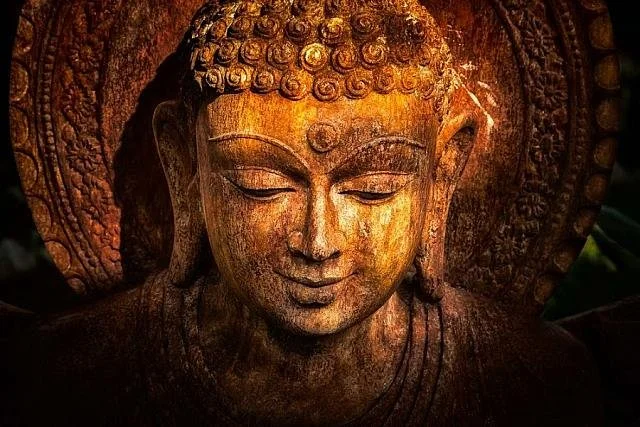How To Practice Meditative Awareness
Within Tibetan Buddhism we practice meditation by cultivating awareness and familiarizing the mind with beneficial qualities like loving kindness, compassion, meditative awareness, and eventually insight into the nature of reality.
What Is Meditation?
There are a lot of opinions and approaches to what meditation is. For the last 22 years I've been studying and practicing in the lineages of Tibetan Buddhism, and will share some ideas on what meditation is from those perspectives here.
Process Oriented Vs. Result Driven Meditation
I find result driven meditation to be a dream killer, as when I’m focused on results, my mind has already created a limiting version of how I “should” feel after meditation, or what experiencing the Buddhist path “should” look like.
Can Compassion Be Harmful?
Compassion is a hot topic these days. What was once relegated to conversations between saints and sadhus is now promoted in various secular arenas, including mindfulness meditation. Compassion has also been a large part of the growing conversations around racial and social justice in the United States and beyond.
Body Enlightenment
“In the 21st– century, the subject of healing the subtle body is crucial. I sometimes say that for western Dharma practitioners, “body enlightenment” is more important than the enlightenment of the mind.” ~ Tsoknyi Rinpoche
Meditation Can Be More Than a Solution
Modern meditation is often presented as a solution to our mental and emotional problems. Although there is some merit to this claim, as seen in countless individual meditators and a growing body of scientific studies, meditation can be much more than just a temporary solution to feeling stressed out.
On Meditation and Mindfulness in Everyday Life
The more I practice the Dharma and study Buddhism, it’s very obvious that, yes, we have methods and all that, but when we de-instrumentalize them, actually what’s happening is we’re just pointing out the capacity of our mind. And it’s so beautiful. And we all have this. We all have this potential. And again, when that connects in with compassion and interdependence and interconnectedness, it’s a way we can love each from a much broader place.
What Is Sangha?
“A sangha is a community of friends practicing the dharma together in order to bring about and to maintain awareness. The essence of a sangha is awareness, understanding, acceptance, harmony and love. When you do not see these in a community, it is not a true sangha, and you should have the courage to say so. But when you find these elements are present in a community, you know that you have the happiness and fortune of being in a real sangha.”
Reclaiming the Sacred
Sacredness is all around us. When there's truth, when there's something profound, we can sense it. Though we can feel it, sacredness can also be something that we put outside of ourselves, that is then special and worthy of our time and attention. Yet even this is just another expression of our Buddhanature as we externalize our light, our sacredness, to see.
Does Meditation Ever Get Easier?
Beginners often want to know if meditation gets any easier, and the answer is yes… and no. It doesn’t get easier in the way that we would think it should. But as we get more experienced, it allows us to reap more of the benefits, even if there’s discomfort associated.
The Heart of Devotion
Devotion is a word that can evoke a wide variety of ideas and opinions. Though we may have our reference points and or knee jerk reactions, devotion is a natural quality of the heart that we can nourish and cultivate, and it can benefit us in both our mundane and spiritual lives.
Meditating on the Five Aggregates
The five aggregates of form, feeling, conception, mental formations, and consciousness make up the entirety of our samsaric experience. They are described and emphasized in the teachings of the Buddha, as they form the basis for how we experience life.
Shifting From My Suffering to There Is Suffering
As we continue to collectively face the consequences of the coronavirus spreading across the globe, no doubt, all of us (sick or healthy) are experiencing the uncomfortable results of this unfolding pandemic. My heart goes out to you and your loved ones in whatever way this has and will affect you.
Working With Fear and Uncertainty
We are currently facing some challenging days ahead. There's a lot of fear, a lot of anxiety, and many unknowns. Now is the time when our Dharma practice can really come alive and be of great use.
Using Our Life Wisely
There are so many ways we can spend our time before we die. Unfortunately, not all of these ways are going to lead us to the happiness we so desire. I doubt many of my readers need this repeated, but our modern hedonic-materialist belief systems, ideologies, and unexamined behaviors are leading us further and further away from genuine happiness.
Knowing This Truth is Noble
The following is a repost from an article written by the late Traleg Rinpoche:
The Buddhist path begins with the recognition of suffering—not just the pointed suffering of sickness, aging, or death, but the vague feeling of anxiety and dissatisfaction that underlies every moment of our lives.
Our Underlying Wholeness, a Reflection on Buddhanature
The essence of the Buddhist path is the teachings on Buddha-nature (awakened-nature). As a foundational principle, I have found these teachings indispensable for my meditation practice.
The Power of True Rest
As we officially move into the Fall/Winter, I am reflecting more on the power of rest. To be more accurate, the power of true rest.
Bodhichitta: The Excellence of Awakened Heart
“When I was about six years old I received the essential bodhichitta teaching from an old woman sitting in the sun. I was walking by her house one day feeling lonely, unloved and mad, kicking anything I could find. Laughing, she said to me, “Little girl, don’t you go letting life harden your heart.”
Beyond Mindfulness
I thought to write a follow up to Craig Hase, and I's essay on "Is Secular Mindfulness for the Better?" In it, we covered some of the complexities we have both had to face as Buddhist and meditation teachers in a rapidly evolving field. We both received a lot of great feedback on that piece. Based on a suggestion from one reader, I would like to talk about some possible directions for people who have benefitted from mindfulness meditation and are looking for some next steps. I am writing this one solo, so any views expressed here do not necessarily represent my previous co-writer, Craig Hase.





















